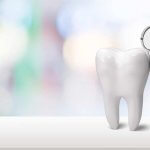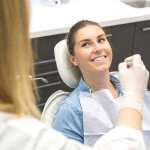Dental Emergency – What You Need to Know
In the case of a dental emergency, a quick visit to the dentist can help save a tooth and procedures to fix the tooth can be made straight away. At Elysian Dental, we understand that accidents and other problems requiring urgent dental treatment can happen to anyone, at any time of day or night. Read on for our guide to dental emergencies and what you should so in the event you experience one.
What is a Dental Emergency?
It’s important to understand the difference between a standard dental issue that can wait until morning and a real emergency that can threaten your health or cost you a tooth. A dental problem that needs immediate treatment to stop bleeding, alleviate severe pain, or save a tooth is considered an emergency. Before you call or visit an emergency dentist, ask yourself the below questions?
- How severe is the pain? Severe, intolerable pain and bleeding are signs of an emergency.
- Have you lost a tooth? Fast treatment can potentially save a tooth.
- Do you have loose teeth? A loose tooth, even without pain, is a serious problem.
- Do you have an infection? An abscess or serious infection in your mouth can be potentially life-threatening. You may notice swelling or knots on your gums or swelling around the face.
- Are you bleeding from the mouth? This is a potential sign of an emergency.
Urgent dental emergencies should be dealt with right away. Call your dentist immediately if you experience any of the above symptoms. Most dentists have an emergency phone number you can call after business hours. If you cannot reach your usual dentist you many need to visit the ER or 24-hour emergency dentist.
What’s Not a Dental Emergency?
If the problem can wait until your dentist can see you within a few days, it isn’t a dental emergency. Sometimes problems that seem critical can actually wait for a day or so, as long as you take care of yourself. The following are dental problems which shouldn’t be considered an emergency requiring urgent care:
- Broken, chipped or cracked tooth (unless the fracture is very painful or has left sharp fragments that can cause trauma inside your mouth)
- Dull toothache (as the pain is not severe and you do not have symptoms of an abscess such as swelling of the face, bumps on the gums, or a high fever)
- Lost filling, crown or bridge – you can temporarily stick a piece of sugar-free gum into the cavity after losing a filling. For a lost crown, you can use denture adhesive or over-the-counter dental cement to replace the crown until you can get to the dentist.
While all of the above issues should be seen to by a dentist as soon as possible, it is usually not essential that you are seen right away.
What You Can Do at Home if You Have a Dental Emergency
The first thing you should do is stay calm and don’t panic. There may be some things you can do to help ease your pain until you can see a dentist.
- If you have a very painful fracture, rinse your mouth with warm, salted water and apply a cold compress to the outside of your face to reduce swelling.
- If you have a tooth knocked out, pick up the tooth by the crown or the top, taking care not to touch the root, and carefully rinse it without scrubbing. If possible, reinsert the tooth in the socket. If you can’t, place the tooth in a small container of milk and get to the dentist quickly.
- In the case of fever or swelling in your face, an abscess or infection may be present. A dental abscess is severe and can become life-threating if left untreated. Rinse your mouth with mild salt water several times to reduce the pain and draw the pus to the surface.
Avoiding Potential Emergencies
The best way to minimise the likelihood of a dental emergency is to practice proper oral hygiene and have routine check-ups with your dentist. During these visits, your dentist will check for loose fillings and crowns as well as signs of decay, infection, and gum disease and prepare a customised treatment plan to address any problems before they develop into an emergency.
Although a comprehensive dental hygiene routine can help to prevent dental emergencies, sometimes they just happen. If you’re dealing with an emergency, it’s important to get to a dentist as soon as possible to prevent the situation from getting worse.
At Elysian Dental, we are your trusted, local dentist in Armadale WA and we make every effort to help patients in need of emergency dental care. If you are experiencing severe pain or any other type of dental emergency, or if you would like a routine check-up to help avoid a possible future emergency, contact us now on (08) 6396 2116





